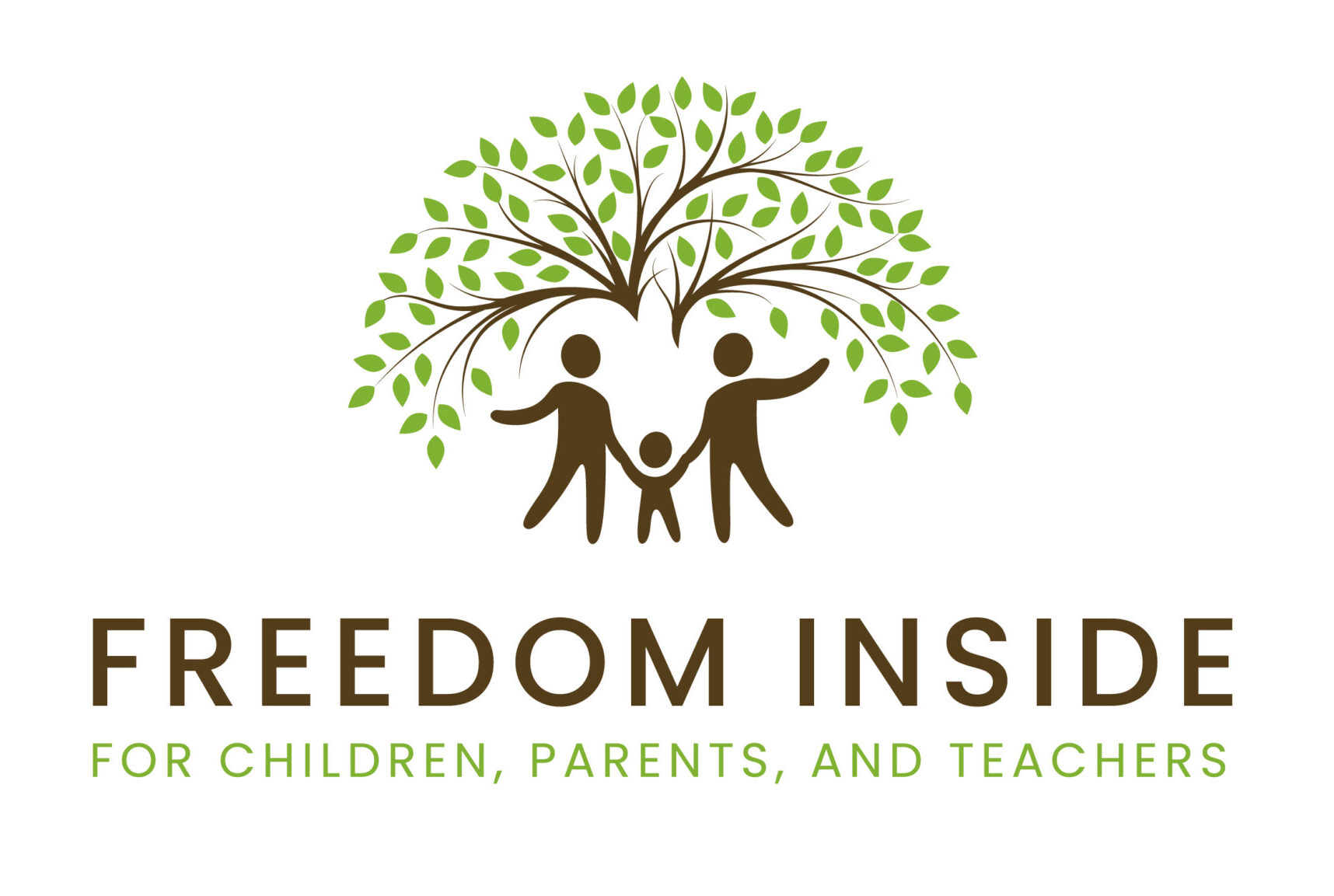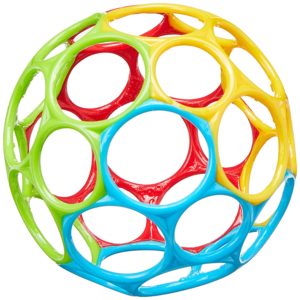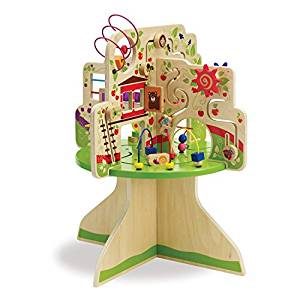Welcome to Mommyhood: The First Year

So You’re a Mom Now
You did it! You made it through your pregnancy and have a new human to show for all your hard work over the last year. The first thing you should do is take a deep breath and pat yourself on the back. No matter how your pregnancy went, how you feel about the birth, you have brought a human into this world.
This is my favorite part. This is when it gets exciting and real. This is when you really get to step forward and put into practice all of your ideas about parenting. I want to clarify that there is no right or wrong way to parent. I have no doubt that I am going to write some articles that don’t ring true to your experience or beliefs. That’s okay. It’s about finding the little tricks that make being a parent fun. Sometimes raising this human will be difficult. Most of the time it will be rewarding. Remember why you decided to have this little being and put your best foot forward.

Postpartum Life
Let’s talk about immediately after you have a baby. I’ve heard many parents comment on how they have a few days in the hospital, and then BAM they kick you out and you are expected to know how to feed, diaper, and generally care for your newborn. If you’ve never been around a newborn before, yikes! This can feel like a lot of pressure.
Before leaving the hospital
Before you leave the hospital (or before your midwives stop their daily visits), make sure you feel fully supported. If you’ve never changed a diaper before, have your nurse show you how. Not sure about this whole breastfeeding thing? Take a minute to talk to a lactation consultant. Don’t feel embarrassed about asking for help.
This might be a gross statement, but make sure you can poop! If you gave birth vaginally you may feel very anxious about pushing again. And even if you had a c-section, sometimes you feel plugged up anyway. Don’t be embarrassed to ask for some stool softener and make sure you have a bowl movement within a few days of giving birth. Speaking of going potty, a little trick I picked up was to touch your toes when you pee! I did this after giving birth vaginally because things were still pretty tender down there and touching my toes prevented stinging. And if your hospital has a perri-bottle and/or witch hazel grab them! I was too tender to wipe like normal, but with a bottle filled with witch hazel I was able to clean and dab.
Settling in at Home
Before you get all comfy and convinced that your pregnancy is officially over, know that babies are only born around 40 weeks because that’s how long we are able to grow them and still push their giant heads out of our bodies. This means that if they could stay in our bodies longer, they certainly would. Immediately upon returning home be prepared to settle in for a few more weeks of recovery for yourself and what I like to affectionately refer to as The Fourth Trimester. It’s no accident that many places of works have parental leave between 6 weeks and 3 months. This is the time it really takes your body and your new baby to adjust to the outside world. Be aware of this and give yourself time!
Your Experience and Mental Health
If you are a first time mom, all this new baby stuff is going to feel… well… new. You might have worries, fears, or anxieties. You might put out your feelers to determine if anyone else has had similar experiences. I know I was surprised at how many experiences I had that no one had warned me about, despite hearing a lot of advice and stories from other people. Just know that you probably are not alone. If you have questions about what you are experiencing, you can always ask your doctor. I have also unexpectedly found that there are a few very supportive Facebook groups for moms out there and those are nice to reach out to a well.
Your body changed physically and hormonally for 40 weeks. Do not expect to go back to pre-pregnancy you in just a few days. It takes weeks for your hormones to balance out. This can lead to mood swings, tears, and a weird sense of ‘meh’ at times. Many women experience Baby Blues. Some women don’t bond with their baby immediately and start to question if they are a good mom. I remember feeling awful because my sister always talked about how the second she saw her son, it was instant love and connection. For myself, it took me a couple weeks to feel like I had bonded with Monster. It took even longer with Rainbow Sprinkle who had stayed in the NICU for a month. If you aren’t feeling on cloud nine at all times, this is completely normal and okay. You went through a lot and now your life is changing a lot as well.
I do want to caution you to watch out for your emotions not recovering after a few weeks. If you have outstanding, pervasive detachment, disappointment, blues, or depression, you may be suffering from Post-Partum Depression (PPD). This may not go away on its own and I highly encourage you to seek help from your doctor or a therapist. I suffered from PPD and finally broke down in my doctor’s office months after Rainbow Sprinkle was born. I now see a therapist regularly and it was the most positive change I could have ever made for myself (seriously, even without depression I think everyone should see a therapist). Don’t feel like you have to pull yourself up and get over it on your own. Ask for the help you need so that you can start enjoying your baby and your life like you deserve.
Getting Support
I am always all about building community and not doing anything alone. I truly believe it takes a village to raise a child. Hopefully you have already examined who is in that village. It’s hard to know exactly what kind of space you may want or need after birth. Some moms want people around immediately, and others want time to settle in. I know my parents came out for both of my kids a few weeks after they were born so that I could have plenty of time to adjust. They also stayed in a hotel so that I didn’t feel like I had to care for them, host, or even worry about baby waking them in the middle of the night. Think about what works well for you and don’t be afraid to set boundaries.
Often when people visit, they want to hold and interact with baby while you run around and cook and clean and maybe jump in the shower. But that shouldn’t be what these first few weeks are about. When people offer to help, don’t hesitate to be very specific. I believe people genuinely do want to help, but often they don’t know how. You can ask for meals, time for a shower, or even for them to wash the dishes for you! And never hesitate to set expectations for visits in advance, such as not more than 10 minutes, or don’t disturb if you and baby are sleeping.
Sometimes we don’t have family around, or maybe we just don’t know how to ask for the help we may want or need. If it is financially feasible, I cannot stress enough how wonderful it is to have a Postpartum Doula. This individual (typically a woman) is here to help you with all your new mom needs. She will often cook, clean, help with breastfeeding, and give you educational tips. If you are in the Colorado area and are actively looking for a Postpartum Doula, check out my packages and prices here.

Feeding Your Baby
Sometimes it feels like the number one responsibility of every new parent is to feed their baby. Yes of course you have to offer love, and help them sleep, and change their diapers, but nothing seems to carry the same weight or level of concern as feeding. For the first year of life, milk is your baby’s primary source of nutrition. So there seems to be a lot of weight and feelings into how you feed your baby. I know when Monster was born, a few days into nursing I became really engorged and we were struggling to nurse. I remember sitting there crying, convinced that my baby was going to starve to death. Obviously, Monster didn’t starve, and eventually we got the hang of it. But the focus and stress that goes into feeding our baby is real. And I think it is born out of love.
Breastmilk
I want to be very transparent with you all that I have a bias towards breastfeeding. It’s affordable, it’s natural, your body adjusts based on the needs of your child. As you read through my blog you will likely find this as a recurring theme.
Breastfeeding specifically is my go to preference. I highly encourage all women to try to breastfeed for as long as possible, with the ideal being at least a full year. Your breastmilk is the perfect balance of nutrition for your child. It changes as they age, based on their needs. This means that as they start eating solids, your breastmilk will start to respond in kind. It’s incredibly impressive.
I have met a handful of women in my time that will exclusively pump. Hats off to every one of them. I managed to exclusively pump for a little over a month when my second was born and it was absolutely miserable for me. Exclusively pumping is the idea of pumping your breastmilk and feeding your child the expressed milk in a bottle as opposed to ever putting them to the breast directly. This is a lot of work, but it is certainly something that is the most comfortable for some women.
I believe most women end up with a reasonable balance between these two approaches. They pump a few times in the day, or make sure there is enough expressed milk for their little one to eat while mom is at work or away for a few hours. Then when they are together, baby goes straight to the breast. It seems to be a reasonable compromise between the two extremes that easily accommodates the lives of many women.
I believe one of the main reasons that women do not continue to nurse is because they fear they are not making enough breastmilk to satiate their baby and keep them growing and healthy. Breastfeeding can be really hard, and it takes time for both mom and baby to get practice and master the art. But maintaining supply while also worrying about your baby can be stressful. I wrote a whole article about How to Increase Breastmilk to help moms assuage any fears they might have as well as to increase their supply if that is what is really needed.
Some moms just want and need a little help with their breastfeeding journey. If that is you, you have a few options. You can hire a Lactation Consultant (IBCLC) that is a nursing professional. You will often find IBCLCs in hospitals or for individual hire. If a Lactation Consultant is out of reach, you could also hire a Breastfeeding Counselor. They tend to be a little more affordable and sometimes are more diverse in the services offered. I know I personally received my Breastfeeding Counselor certification because I thought it would be important to have as a Postpartum Doula. So a Breastfeeding Counselor who is also acting as a Postpartum Doula may do other things beyond breastfeeding support, such as cleaning the house, making meals, and offering general developmental education.
Formula
If breastfeeding isn’t right for you, you still have to offer your child liquids for the first year of their life. Cow’s milk is not an adequate supplement. Instead, women who do not breastfeed offer formula. There is nothing wrong with offering formula. It provides much of the same nutritional value that breastmilk does. It can come in liquid or powder form.
Feeding one way or the other, be it formula or breast, does not have to be an all or nothing deal. You can offer both as appropriate. Maybe you don’t have time to pump so you give formula any time you cannot be with baby. Or maybe nursing at night or for sleeping is the only time you want to offer the breast. As long as your little one is receiving enough milk throughout the day, the final form between the two isn’t super relevant. There are no parenting rewards, so just find the balance and do what is right for you and your family.
Solids
Around 6 months (ask your pediatrician if you believe your child is ready sooner), your child may start showing signs of readiness to eat solid foods. This manifests in a few ways. Most importantly, you want your baby to be able to sit up on their own and to have good head control. Then they may have signs such as smacking lips as they watch you eat, trying to take your food, and opening their mouth when you offer a spoon. Starting your baby on solids always feels like a huge milestone for parents.
How exactly you offer them solids is up to you. Baby foods are pretty common still, and a great way to entice your child to start eating. You can buy food at the store in little jars and this is still the most common way to offer baby foods. They come in fruit, vegetable, and meat flavors. I personally think they look, smell, and taste disgusting but most babies seem to eat them without problem. You can also make your own baby food by boiling food to soften it and then smooshing it up. This is more affordable than buying jars of food, but is also more time consuming.
Personally, while I managed to make a few jars of food from scratch for my kiddo, I wasn’t very good at it. I fondly consider myself both lazy and practical. This brings me to a newly popular type of feeding, Baby Led Weaning. This is the idea that you feed your little one everything that you are eating, just cutting it up into smaller, baby sized pieces. Some of my little one’s favorites were salmon, green beans, and sweet potato. I have a bias towards this approach because I found it to be the easiest way to feed your child solids. And girl, I’m all about easy.

Sleep for Everyone
Ahh sleep, the elusive, mythical creature of the first year of life for every parent after having a baby. Oh wait, that’s not true (considered putting in an expletive, opted not to, use your imagination). You see, sleep is one of my absolute favorite things, and me without it is not a pretty sight. I believe that if you start the process of training your children to sleep from even before they are born, that having them sleep through the night between 4-6 months is completely reasonable. And even before then, if you come up with systems for the night, you can wake only minimally.
Now, you probably aren’t pregnant anymore, but just in case you are reading this now, before you give birth, sleep practice can start in the womb. I used to read my tiny a short story (also great for bonding) and then sing a song before I went to sleep. The same song, every single night. So then after they were born, I bet you can guess what the bedtime routine looked like.
Now obviously, there are realistic expectations for sleep depending on each age group. Your 2-day-old won’t be able, and shouldn’t, sleep an 8-hour stretch. But you can avoid making bad habits early. Put baby down when they sleep, practice having them sleep on their own, and having them spend time sleeping where you ultimately want them to sleep. So if you want them in a crib, don’t put them down for bed every night in a swing. The vast majority of the sleep training work that I do is actually about breaking bad habits.
Teaching your child that nap is different from bedtime can start now as well. Maybe nap time they sleep near you, or you let them sleep in the swing. Maybe you keep it brighter in their room or louder in the house. Whatever you do, make sure the energy of nap time feels different. This will help your child’s circadian rhythm balance out sooner. This will also help their naps stay shorter and help their night sleeping elongate.
Night time is sacred time. It is quiet and dark time. We should not be waking up, turning on all the lights in the house, chatting, or playing. When you get up, keep the environment calm and quiet. We used a very dim light in another room so that Dad could change their britches. Then I would nurse them back to sleep and the whole interruption was less than 15 minutes.
This feels like an appropriate place to discuss safe sleep practices as well. I want to be transparent in that I personally don’t actually follow safe sleep practices and personally don’t believe in them. This is more of a cultural thing for me though, as I believe baby is safest in bed with mom, as you will find them all around the world (the instructions for safe sleep come from a very white perspective in my opinion). I also do not drink, smoke, or partake in any conscious altering drugs and I breastfed on demand. That doesn’t mean that things like co-sleeping are a good fit for everyone.
The official Safe Sleep practices are to lay baby down on a firm, flat surface by themselves without loose blankets, bumpers, or stuffed animals. Early Learning Centers, which are required to follow safe sleep practices, can’t even have pacifiers with stuffed animals on them. This is your baseline. This is the ‘safest’ way for your baby to sleep, all the time, every time. This is where you should aim to start unless you have your own personal beliefs and reasons for standing behind those beliefs (beyond convenience or because that’s how your family did it and you are all fine).
For more details around sleep, you can check out each of my blogs to get tips and tricks for your child’s specific age group.

A New Normal
You have made it home, life is starting to settle down, and you are finding a routine. This is your new normal. Well, sort of. It’ll change again in a few months, as all things in life do. For now, take a moment to savor it. Look at your tiny human, fawn over them, adore them. Sometimes it might feel like you could just burst from how much you love them. Being a parent is really special in its own way. That doesn’t mean it is always easy though.
It is up to you to find the rhythm and the pace you want to live your life at for the next year. Life with a New Monster is going to look different for everyone, based on your lifestyle, preferences, and relationships. As I have said a million times before, don’t feel like you have to raise this baby on your own. Build a Support Network, talk to your family members, hire a postpartum doula. Do whatever is right for you to find your happiness and Freedom.
In these first few weeks after baby is born you will have to decide if you go back to work or stay home. This may be more than a personal decision. Take finances into consideration as well. It costs me $1,700 a month for my half of daycare for two children where I live. If you are barely bringing home more than that, it might make sense for you to stay home. Or maybe it makes sense for your partner to take care of the children. This is not a decision to take lightly as there are significant pros and cons to both choices.
Beyond the big decisions, the real joy of parenting lies in the day to day. The morning routine, the nursing stints, the snuggles and cuddles, and the pure love. I was an ‘unusual’ parent and my parenting style worked great for me and my partner. My children, older now than yours no doubt, have incredibly secure attachments and are happy and healthy. Guess what? I bet your children will be the same. If you didn’t care about trying to raise your children to the best of your ability, you wouldn’t be reading this lengthy post to get as many tips as you can. You are going to great simply because you want to.
Parenting is not a one woman job though. It is the responsibility of everyone in the relationship. This means that if you have a partner, they have to be part of the parenting equation as well. Many women complain of their partners not helping around the house, of having to do all the cooking and cleaning, of getting up every night. Our society breads inequity between the two partner roles, with a vast majority of the responsibility typically falling on the woman. Working out how to parent together isn’t going to happen by magic. You will need to actively discuss new expectations and work on maintaining your relationship. Resentment and frustration can build to defeat and separation. If that is not the route you want to go down, start talking about expectations and building and improving on your relationship now.

More Baby Stuff
Hopefully by now you have already obtained most of the supplies for baby you might need. Glance through this list of different articles I’ve written for reviews on different items I’ve used or parents I have worked with have used. You’ll notice I have a lot of book reviews as well, because I really find reading to be important.

Your Body
I don’t know if you have noticed, but your body has probably started to change. I mean sure, it grew a bit over the last few months, but even since baby was born it is probably looking and feeling different than it did before you gave birth. Body image after birth is hard. Both my kids were born a number of years ago and sometimes I will still look at myself in the mirror and have to remind myself that this body carried and birthed two humans. I’m not sure our bodies ever go back to the way they were before we had children.
Just because we won’t have exactly the same body again, doesn’t mean we shouldn’t take care of the body we have. Let’s take a moment to discuss pelvic floor care. The pelvic floor is essentially the muscles that are at the base of your torso. We don’t talk much about these muscles, but maintaining your pelvic floor and getting it back into shape will help lessen and even prevent incontinence. You know how women talk about peeing when they jump on a trampoline or after they laugh or sneeze? That comes from weak pelvic floor muscles. Look up how to do kegals, or even better, see a physical therapist the specializes in pelvic floor care. This group of muscles is one you will likely have to work for the rest of your life, but it’s just like any other muscles you need to challenge and work. It makes sex more pleasant as well, so that’s a bonus.
Beyond your pelvic floor, you also want to check your abdominal muscles. Carrying a baby is hard work and your internal organs literally shift and move in order to accommodate. This will often include your abdominal muscles right along your belly button separating to make room for that tiny human to grow. This is very common and is referred to as diastasis recti. During pregnancy you want to minimize damage, and after pregnancy, you want to heal any separation there was. This is especially important to work on before you start any real workouts because you can make that muscle separation worse if you are not careful. Read all about how to check for diastasis recti and how to work on healing it in my blog here.

Watching Your Baby Grow
Above all else, this first year is all about watching your baby grow from a tiny, helpless newborn to a strong, capable, adorable 1-year-old. This experience will melt your heart. Watching your little one hit milestones, start to smile, start to crawl and almost double in size will fill you with awe. I know I risk getting sentimental here, but I look back at the first year and my heart glows. Sure, there were times it was hard, or scary, or exhausting. In the end, the first year is special in a way I can’t really put words to.
Your little human is a special, new part of your family. Sometimes this means introducing them to your pets, sharing them with your parents, and even helping other siblings adjust. Most times it just means including them in your day to day lives. Your routine will need to reflect their needs. This might mean protecting their nap, so no activities planned at those times. It often means making sure you stop to feed them multiple times a day. You may have to go to the doctor more frequently or adjust your work schedule to accommodate their care. I promise these little adjustments will be worth it.
I really think there are a lot of pros to simply bringing them around with you. I loved taking my kiddo to work on occasion, or even just wrapping them against me and carrying them around the house as I cooked, cleaned, or chatted with other people. Having babies at your height, as opposed to down on the ground or at stroller level can help them absorb language more because they may feel they are part of the conversation. You cannot spoil a baby, so don’t let yourself worry that you will have to hold them all the time. The best thing you can do for your little one is build a healthy attachment.








